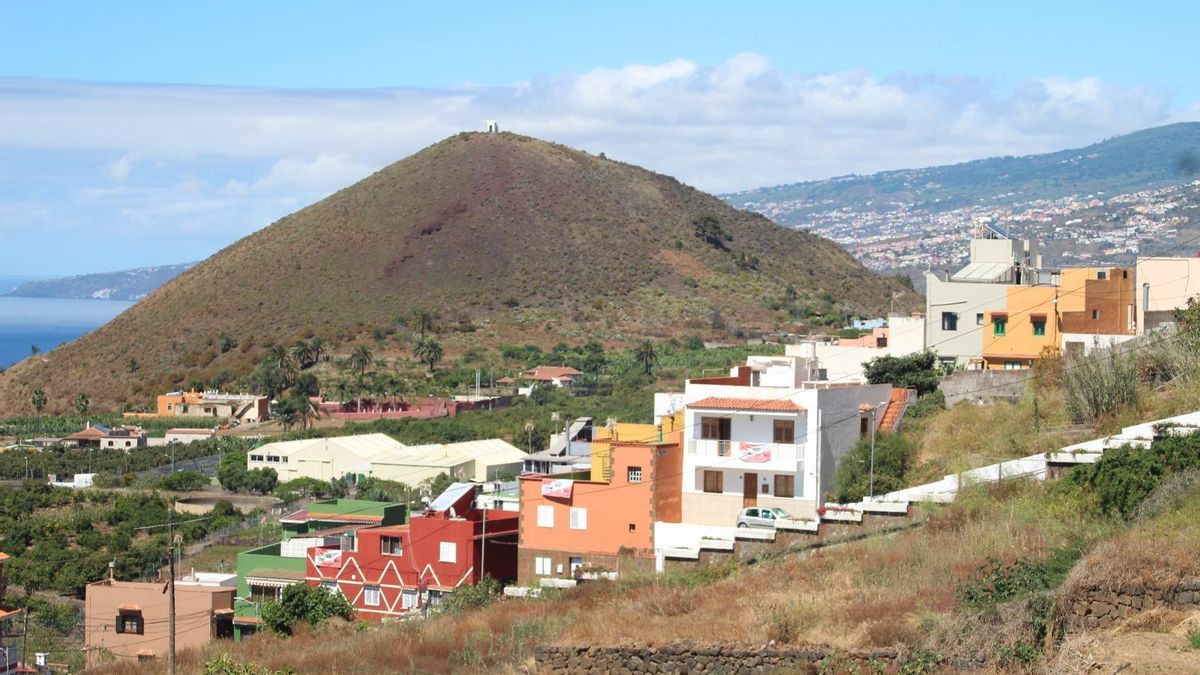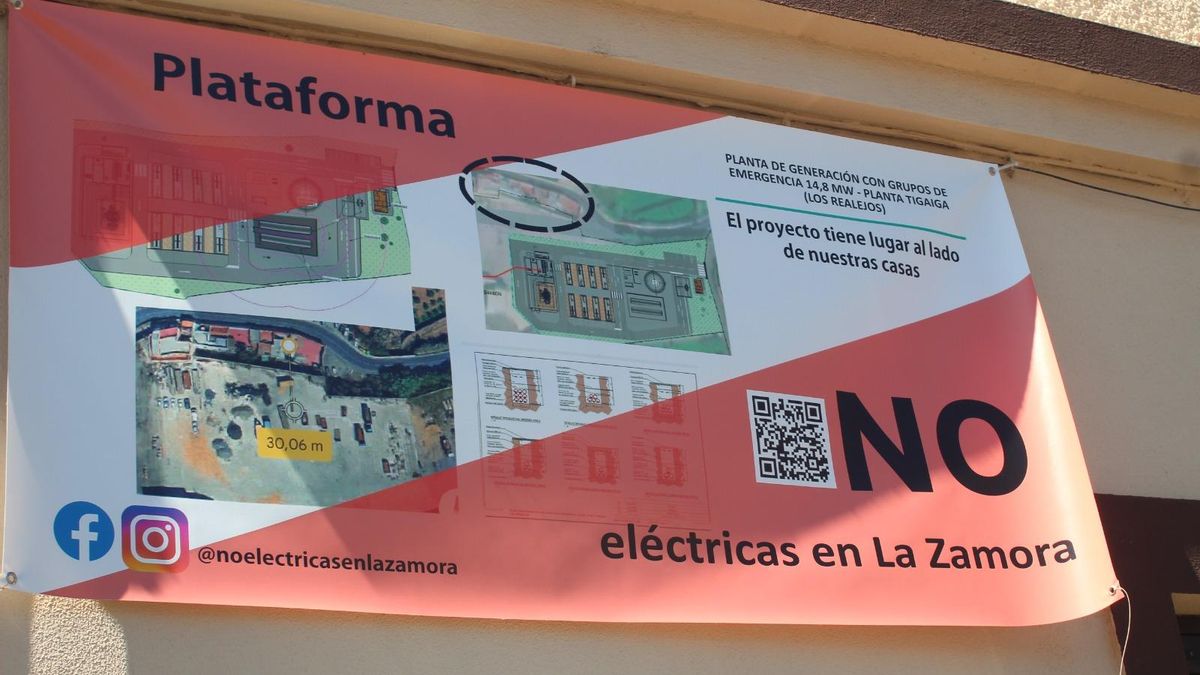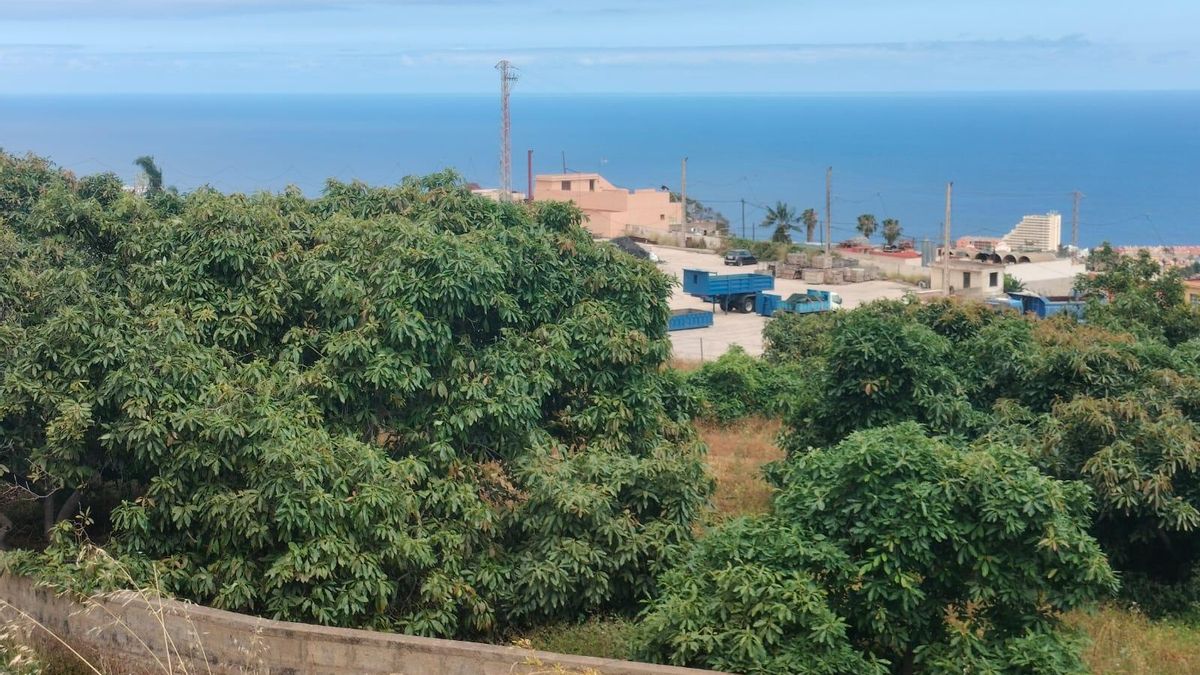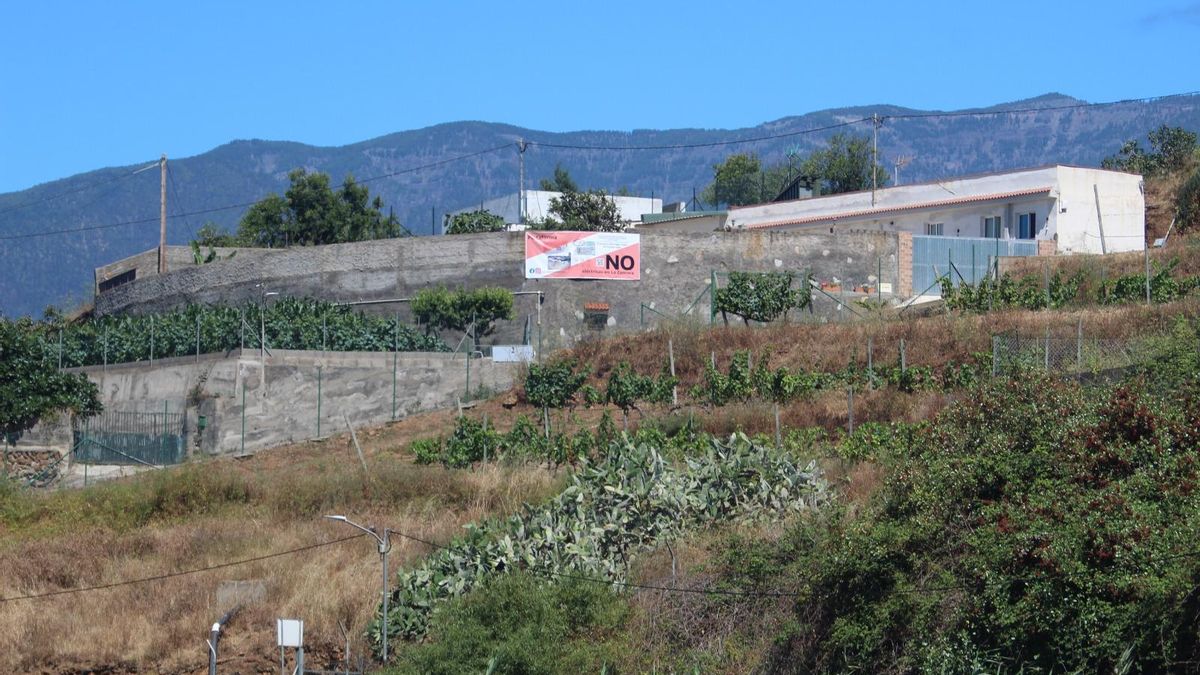Anyone travelling these days along the main road of La Zamora, intending to go to or from the industrial estate of Los Realejos, a municipality in northern Tenerife with around 37,500 inhabitants, will notice that something is amiss. The local residents are clearly unhappy about something significant. This becomes particularly evident near the so-called Bodegón La Bloquera and its neighbouring homes, as well as those directly across from it. However, upon observing other houses in the area, closer to the neighbourhood of La Montaña, one gets the same impression, leading to the conclusion that there is a considerable and organised citizen mobilization. Many homes display well-crafted and identical banners on their façades, firmly expressing their strong opposition to the installation of a gas plant in the area, which is reportedly only 30 meters away from homes established many years ago.
This mobilization has turned into a platform and has already achieved, among other things, the unanimous support of the Realejos Town Council. Both the local government (PP, with 15 councillors) and the PSOE (5) and CC (1) have submitted objections to the project, emphasising, among other arguments, that such an installation is unsuitable for this location. Although it is situated close to the municipality’s industrial estate, it would also occupy part of rustic land, which prevents construction in this manner; “just like a neighbour can’t be allowed to build a storage shed,” as stated by the mayor, Adolfo González, in an interview with Canarias Ahora.
Only if the regional government (CC-PP) grants it the classification of work and plant of general interest could this crucial obstacle be overcome. For now, it has not done so, although the Minister for Ecological Transition and Energy of the Canary Islands Government, Mariano Hernández Zapata (PP) from La Palma, keeps emphasising that, like other similar plants, this one is essential to address a potential energy crisis similar to those that have already occurred in Tenerife, La Gomera and La Palma. This generation facility is called Tigaiga (located in the Realejos area, although removed from this site) and will have emergency groups totalling 14.8 MW.

A regional vice president and former mayor who remains silent
It is notable that Los Realejos, once a socialist stronghold with powerful absolute majorities (from 1979 to 2003), has become one of the flagship municipalities of the PP in Tenerife since, in 2011, after serving as the Finance Councillor from 2003 to 2007 (in coalition with CC) and going into opposition due to a self-defensive pact between CC and PSOE (from 2007 to 2011) because the conservatives had increased their number of councillors from 2 to 6 in 2007. The current vice president of the regional government, Manuel Domínguez (PP), achieved strong absolute majorities, further strengthened (in votes and percentage) in 2023 by the current mayor. For this reason, and given the unanimous opposition to this plant among all groups in the council, residents do not understand why Domínguez has yet to comment on this controversy, which affects his municipality and residents who, in many cases, likely supported him in his rapid political ascent since 2003, which has led to his partnership with Fernando Clavijo and the regional vice-presidency.

Canarias Ahora asked Domínguez to share his views on the plant and the strong opposition from residents, but he again avoided addressing it. Sources from his communications team made it clear that his stance is aligned with the official position of the government, emphasising that, while there are residents complaining now about the location of a facility that the executive considers essential, many more would be outraged by an energy blackout in Los Realejos, their comarca (the Valley of La Orotava), the northern area, or all of Tenerife, demanding explanations and compensations afterwards.
The problem is that the chosen location is fiercely contested by the affected residents, as well as others from Los Realejos and different areas. For example, it is challenged by the new secretary general of the Tenerife socialists, Tamara Raya from Puerto, a regional deputy and likely candidate for the Cabildo de Tenerife in 2027. She spoke clearly last week in a press release and in the regional parliament. The affected residents lament that their protest is being politicised, but, as their spokesperson, Montse González Castro, points out, they have witnessed a surprising level of citizen support in recent days, which extends beyond La Zamora and La Montaña to many other areas. In fact, once they reach a “round” number, they will disseminate the signatures they have been collecting over the past week as proof that this is not just a sporadic and self-interested opposition from the most affected residents, especially those located just a few metres from the proposed plant, but rather a much more widespread rejection.

According to the spokesperson, this is due not only to the health impacts and inconveniences of a propane gas plant, with the constant noise it generates and other safety and health risks, but also to what she considers nonsensical in 2025: continuing to rely on energy in the event of any failures in the system or networks on fossil combustion “that, supposedly, should not be used after 2030, even as a backup during a blackout.” Therefore, she refers to the “investment in La Palma” regarding storage via batteries for clean energy and believes that the plant being proposed (to be developed by the hydrocarbon company Disa after reaching an agreement with the landowner) is outdated and contradictory to the ecological transition that is much talked about, with ministries specifically named as such.
Additionally, she questions the constant emphasis from the Canary Islands Government stating that this is a “transitory” installation when its lifespan is set at 25 years. She asks what technicians and politicians would do if they lived right next to it. Furthermore, she believes the key to the current energy emergency lies, among other issues, in the lack of a real and contradiction-free commitment to renewable energies, “not in continuing to burn fossils with propane gas groups.”

A very similar opinion is held by the local leader, who emphasises to Canarias Ahora that the stance of the council is not only unanimous but also strong regarding this project and that he has communicated this to the person who, until a significant part of the previous term, was his mayor (he held the first Deputy Mayor role) and now occupies the regional vice-presidency. Although González admits that if the plant is declared a “project of general interest”, the local margin becomes narrower, he makes it clear that they will continue to oppose it before any necessary authorities.
The relevant councilor detailed the position of the Canary Islands Government last week after a question from the Socialist Group during a parliamentary session, stressing that this is one of eight projects aimed at ensuring energy in the event of failures or blackouts and that it is being processed via an urgent route due precisely to the energy emergency declared by the regional executive at the start of this legislature following an energy blackout in La Gomera and due to the condition of facilities in that and the remaining Islands, with special concern for Tenerife, La Palma (which recently experienced a blackout and outages) and Gran Canaria, though the issues extend to all except for El Hierro, which has had the Gorona del Viento renewable installation for years.
Hernández Zapata explains that the period for objections to this plant has already closed and, as in other cases, they will be reviewed and responses provided to those submitted. The Government stresses that the choice of locations depends on the technicians and that, as with the rejection of a liquefied natural gas plant in La Luz port (in Las Palmas de Gran Canaria), they should be allowed to work freely and without pressure.
Meanwhile, the affected residents and those who are aware of the opposition to this installation feel another type of pressure: a quality of life they consider threatened, which is why they have donned war paint and have no intention of removing it.















